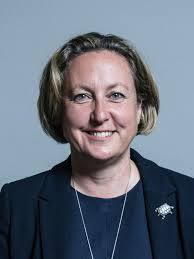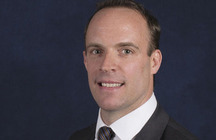Anne-Marie Trevelyan – 2020 Statement on Global Response to Covid-19
Below is the text of the statement made by Anne-Marie Trevelyan, the Secretary of State for International Development, in the House of Commons on 6 May 2020.
With permission, Mr Speaker, I would like to update the House on the UK’s support for the global effort to tackle the coronavirus pandemic.
The world is now having to address the biggest threat that it has faced in decades: an invisible killer on a global scale. Here in the UK, communities across the country are united in their determination to beat it, making their own personal sacrifices by staying at home, protecting our NHS and saving lives.
There is a daunting outlook for countries in the developing world, simultaneously facing a health crisis, a humanitarian crisis and the risk of a protracted economic crisis leading to much greater hardship for years to come. The threat of famines, exacerbated by the worst locust plague for 70 years, fragile healthcare systems that enable the spread of the disease and economic disruptions risk a much longer and harder road back to recovery than for wealthy countries.
However, through the altruism of the British people and the expertise of our scientists and engineers, the UK is proudly playing a leading role in the global response. On Monday, together with other world leaders, my right hon. Friend the Prime Minister co-hosted a virtual global coronavirus response pledging conference. He called on countries around the world to step up their efforts and work together on this, the
“most urgent shared endeavour of our lifetimes”.
World leaders responded, and some £6.5 billion was pledged for the covid-19 response, including the UK’s own £388 million commitment for vaccines, tests and treatments. The UK is proud to stand with our international partners—this is a truly global effort, and the only way to fight this pandemic is together.
The UK is a development superpower, and we are also a scientific and medical world leader. This enables our response to this global pandemic to be greater than the sum of its parts. From Gloucestershire’s Dr Edward Jenner, who laid the foundations for immunology, to our researchers who developed vaccines for measles and Ebola, the UK has led the scientific response to many global health challenges in the past. I am so proud to be able to say that UK-based scientists, such as those at the Liverpool School of Tropical Medicine, are playing key roles in the global response to this deadly new virus. Scientists in Bedfordshire who developed rapid diagnostic devices to manage the recent Ebola outbreak, funded with taxpayers’ money through UK aid, are using that expertise to develop new rapid diagnostic tests.
Researchers at Oxford University, funded through CEPI— the Coalition for Epidemic Preparedness Innovations —are now progressing to clinical trials, with funding from the UK Government’s vaccines taskforce, which is also funding a vaccine trial starting soon at Imperial College. In partnership with a British success story, AstraZeneca—one of the world’s largest pharmaceutical companies—our Oxford researchers are working towards their vaccine being manufactured at scale. We know that any vaccine might prove to be the solution, so through our Department for International Development aid budget, the UK is the largest single contributor of any country to CEPI’s international efforts to find a coronavirus vaccine. Through this fund, we are working to improve our understanding of the virus and to support scientists around the globe. CEPI is already backing nine potential vaccines.
The Foreign Secretary outlined at the launch of the World Health Organisation’s access to covid-19 tools accelerator that the UK is proud to work with our international partners to ensure that new vaccines are accessible to everyone, as quickly as possible. No one will be safe until we are all safe. So we will need vaccines against this deadly disease, at home and abroad. Once a vaccine is found, delivering it globally will be the next big challenge. To help with that, we have invested the equivalent of £330 million a year for the next five years in GAVI, the global vaccine alliance that delivers vaccines in 68 of the poorest countries around the world. On 4 June, the UK will be hosting the global vaccine summit to co-ordinate international investment efforts for GAVI. Together with the announcement made by the Prime Minister on Monday, that is a combined additional investment in global health security that comes to more than £2 billion, helping combat the spread of disease. In investing globally, we are helping to protect our citizens—our families—from future waves of infection, and protecting our NHS.
The global pandemic is one part of the challenge facing the world. DFID’s immediate coronavirus response to date amounts to £744 million. But this is on top of our work to pivot much of our existing work to provide health, humanitarian and economic support where it is needed most, as part of our response to these crises, with a health response that builds on the UK’s long-standing record of supporting countries to prepare for and respond to large disease outbreaks, including as the third largest donor to the World Health Organisation. We are investing on the frontier of research into new rapid diagnostics and therapeutics that can detect and treat coronavirus. Working in partnership with Unilever, we have launched an innovative hand-washing campaign that will reach 1 billion people around the world—a major contribution to global sanitation and hygiene. With the support of British and international non-governmental organisations, and advice from the London School of Hygiene and Tropical Medicine, we will reach one in seven people around the world with information on the most effective ways to stop the virus spreading and save lives.
We are also working to reduce the global economic impact of the virus by preventing its spread, protecting both the UK public and the stability of our economy. Last month, the UK, together with other G20 countries, announced a commitment to suspend debt service payments to the poorest countries until the end of 2020. This will create up to $12 billion of additional fiscal space. DFID has also made up to £150 million available to the International Monetary Fund for debt relief. These measures will enable developing countries to direct greater domestic resources to their own healthcare efforts, helping to prevent the virus from spreading around the world. We are supporting developing country Governments to make proportionate, evidence-based trade-offs between containing the virus and maintaining open trade, so that essential goods and services, including critical medical and food supplies, can continue to move around the world. That supports developing countries, but it also means that British consumers will get the vital goods they need.
Covid-19 is a global pandemic. It does not respect national borders. Individual efforts will succeed only as part of a global response. The UK will continue to play a leading role in galvanising the most effective co-ordinated international action. In 2017, the scientific community in the UK proudly played a key role in the international response to the Ebola outbreak in west Africa. I am proud to update the House that we are doing so again.
We are using British expertise and funding to demonstrate leadership internationally. Recognising that needs will be great, we are doing whatever it takes to ensure that vaccines, treatments and technologies are available, to save lives and to support economies in the most vulnerable countries, and to help end the pandemic. That will help reduce the risk of the world being attacked by a second wave of infection. As the Prime Minister said on Monday:
“It’s humanity against the virus—we are in this together, and together we will prevail.”
I commend this statement to the House.


